Eastern Europe meets Africa
 Take young journalists from Eastern European countries, bring them together with experienced journalists from Africa and give them the chance to produce stories together. That’s East4South in a nutshell but it’s an interesting media project on many levels.
Take young journalists from Eastern European countries, bring them together with experienced journalists from Africa and give them the chance to produce stories together. That’s East4South in a nutshell but it’s an interesting media project on many levels.
The journalists first meet for an initial workshop in Brussels. Here, they discuss their perceptions of each others country and examine intercultural reporting. And, importantly everybody finds a team partner for the reporting trip in Africa.
After one week in Brussels, the participants go back to their respective homes to get ready for the big project. About three months later each team meets in the home country of the African partner and begins producing their TV features, radio reports or articles.
Two participants really clicked together. Christian Katsuve Kamate is from DRC and works for a local radio station in Bukavu. He teamed up with Katarzyna J. Kowalska who is from Poland and works for Polish national television. After their first meeting in Brussels they agreed on a topic for a film: the life of an ex-child soldier, moreover – a female child soldier. For both of them, the work experience left a lasting impression. We caught up with them during their post-production at DW’s studios in Bonn.
![]() read more
read more
Wikipedia – a global treasure?
To some it might sound like a hoax, but Wikipedia is applying for UNESCO World Heritage status. After all the global online encyclopaedia, that has just celebrated its 10th anniversary, gets 40 million visitors a month, is listed as one of the top ten most-visited Web sites, and has archived more than 18 million entries in 279 languages.
Wikipedia is a cultural phenomenon
This week Wikipedia launched a petition to acquire a spot on one of the world heritage lists of the U.N. Educational, Scientific and Cultural Organization (UNESCO).
“Wikipedia is not just a website, just a technology story, but its a cultural phenomenon… its about people coming together and sharing knowledge”, says Jimmy Wales, founder of Wikipedia in an interview with the dpa news agency. Acquiring UNESCO world heritage status he says: “would be a delightful recognition of the accomplishment that all those thousands of people who have been working in Wikipedia. And it would raise awareness for free knowledge”.
![]() read more
read more
#bbcsms – a social media summit
It’s probably the mark of a good conference that thought provoking conversation (and a fair bit of debate!) continues to bubble away long after everyone has gone home. That’s the beauty of social media and that’s what you’ll find if you search Twitter for #bbcsms – the BBC College of Journalism Social Media Summit on how mainstream media is dealing with the challenges posed by social media.
But before you dive into the conversation, check out the conference reports from the CoJo website and you can watch each session on YouTube. It’s an excellent resource.
All of the sessions were informative, but for the sake of brevity here are a couple of highlights.
Social media in the newsroom: carrots and sticks or sandwich?
What elements are needed to make cultural change happen in a newsroom? was the big question for the panel on the opening session.
![]() read more
read more
Uganda walks to work with social media
As Yoweri Museveni begins his new term as President of Uganda, the simple act of walking to work has taken on a whole new meaning.
Last month, a loose coalition of opposition political parties and civil society groups known as Activists for Change called on people to walk to work as a way of showing concerns of rising fuel and food prices.
However, the government’s heavy crack down on the Walk to Work marches has made headlines around the world – particularly with photos and footage showing opposition leader Kizza Besigye being pepper sprayed and brutally dragged away by police.
According to Human Rights Watch nine people have been killed during clashes with police.
![]() read more
read more
A quick guide to covering breaking news
 Whether catastrophe in Japan, the Arab Spring or Osama Bin Laden’s demise, recent events have shown even hard-nosed skeptics that there’s no way to escape social media as a news source for journalists. But undiluted tweets and wall posts on Facebook don’t necessarily carry news value in and of themselves. You need the right filters and a clear search strategy to extract the most relevant content from the excess of information. As Clay Shirky put it, "It’s not information overload. It’s filter failure.” Photo credit: g23armstrong / Flickr
Whether catastrophe in Japan, the Arab Spring or Osama Bin Laden’s demise, recent events have shown even hard-nosed skeptics that there’s no way to escape social media as a news source for journalists. But undiluted tweets and wall posts on Facebook don’t necessarily carry news value in and of themselves. You need the right filters and a clear search strategy to extract the most relevant content from the excess of information. As Clay Shirky put it, "It’s not information overload. It’s filter failure.” Photo credit: g23armstrong / Flickr![]() read more
read more
Interviews, talkshows and reporting Zambia’s elections
Although an official date has not yet been announced, Zambia is well and truly in the grip of election fever. Presidential and parliamentary elections are due to be held before October.
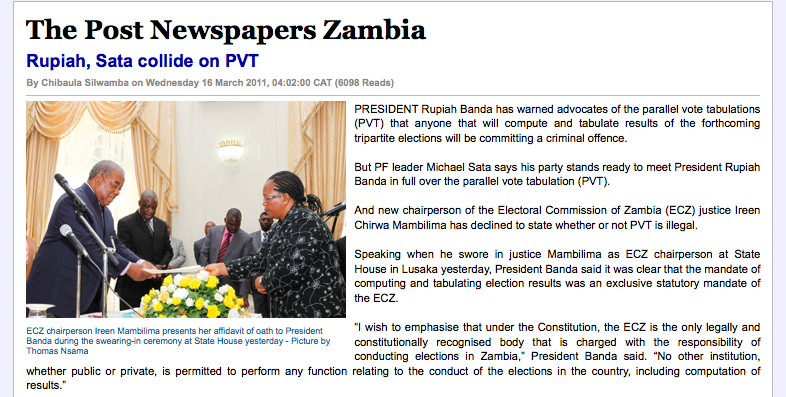
Newspapers, both state-owned and private, scream the election promises of politicians. Talk radio programs are full of the opinions of voters and TV news bulletins of the national broadcaster offer generous campaign coverage of the incumbent President, Rupiah Banda.
Strike up a conversation in a taxi in the capital Lusaka, and at some point, talk with the driver will invariably turn to politics and what is good for "the people".
It was against this background of elections that the DW-Akademie conducted a training course in Lusaka with radio journalists on Interviews and Talkshows. And, it wasn't any surprise that our participants wanted to explore political themes, develop their skills to interview politicians and discuss ways to improve talkshow programming during the election campaign.
![]() read more
read more
Press Freedom and Windhoek – 20 years on
It's worth noting that this year's World Press Freedom Day coincides with the 20th anniversary of the Windhoek Declaration on Promoting Independent and Pluralistic Media.
Take a moment in your day to check out the document.
At a first read though, you could not be blamed for thinking that much of what was noted in point 6 of the declaration could apply in many African countries in 2011.
"In Africa today, despite the positive developments in some countries, in many countries journalists, editors and publishers are victims of repression – they are murdered, arrested, detained and censored, and are restricted by economic and political pressures such as restrictions on newsprint, licensing systems which restrict the opportunity to publish, visa restrictions which prevent the free movement of journalists, restrictions on the exchange of news and information, and limitations on the circulation of newspapers within countries and across national borders. In some countries, one party States control the totality of information."
![]() read more
read more
Interview and Talkshow training – get the basics right and listen
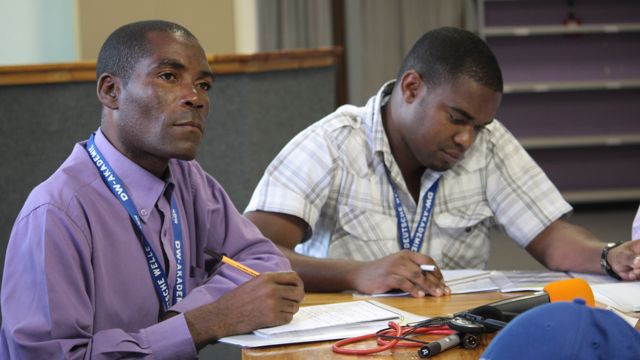
Interviews can be daunting and challenging for young journalists – especially if they are broadcasting live or moderating a talkshow dealing with controversial topics. In this guest blog post, Carsten von Nahmen, Head of the DW-AKADEMIE Africa Team, offers some insight on getting the basics right.
![]() read more
read more
Using an “axis of importance” diagram to evaluate sources
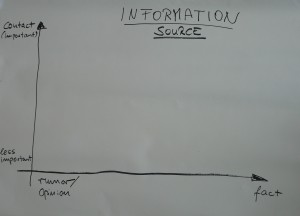 Out of one workshop at NUOL came a good tool that fits perfectly into that quest. It’s a diagram that helps journalists evaluate their sources (see photo at left, click to enlarge).
Out of one workshop at NUOL came a good tool that fits perfectly into that quest. It’s a diagram that helps journalists evaluate their sources (see photo at left, click to enlarge).![]() read more
read more
An inside look at Bhutan’s first TV program for kids
Thinley Yangchen Dorji, a producer at the Bhutan Broadcasting Service Corporation (BBS), takes us on a tour behind the scenes of Bhutan’s first homegrown TV show for kids. Called “My World”, it’s a 30-minute program for youngsters aged eight to twelve that began airing regularly in January. Welcome to “My World”!
Prior to “My World” there were no Bhutanese television programs for children. Foreign programming available via satellite was entertaining but had little educational value. Pema Choden, BBS’s General Director until the end of March 2011, approached DW-AKADEMIE for support. Her aim was to have a quality program tailored to children in Bhutan.
![]() read more
read more



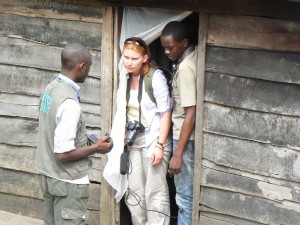

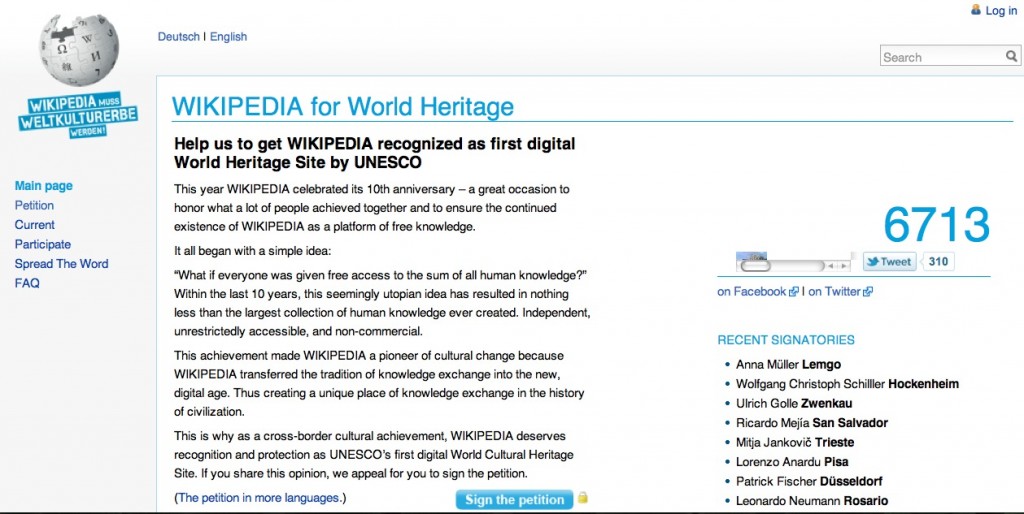
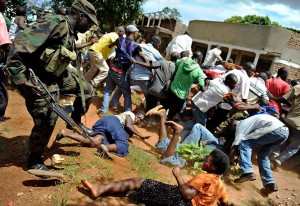
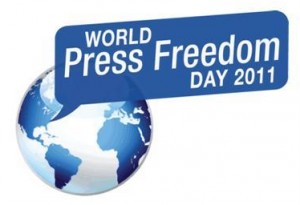




Feedback